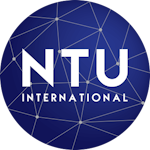NTU participated in the DG INTPA Conference

NTU participated in the DG INTPA Conference
NTU recently participated in the DG INTPA Conference, "Migration and Border Cooperation in Central Asia - State and Civil Society Approaches," held on November 20. The conference addressed a wide range of migration policy issues in the Central Asian region. Organized as a platform for sharing lessons learned, the event focused on fostering opportunities for safer migration and enhancing collaboration among stakeholders.
At the outset, representatives from the International Centre for Migration Policy Development (ICMPD) provided an overview of the implementation of EU-funded projects in the region. This included the objectives and overall approach of these initiatives, aimed at supporting regional stability, socio-economic development, and stronger partnerships between governments and civil society. Key EU objectives include promoting safe and informed migration, facilitating high-level dialogue and strategic cooperation, and ensuring that these projects serve as models for addressing migration policy challenges in other regions.
The EU’s approach in Central Asia emphasizes collaboration among stakeholders at all levels—governments, civil society, and international partners—to build effective migration governance. This strategy includes capacity-building initiatives, policy dialogues, the establishment of Migrant Resource Centres (MRCs), and awareness campaigns. Implementing partners ensure that projects are adapted to local needs and changing circumstances. A cross-cutting focus on human rights, sustainability, gender equality, and support for vulnerable groups was underscored as important to the success of these efforts.
Two flagship EU programmes on migration policy in Central Asia were highlighted: the Border Management Programme in Central Asia (BOMCA) and the PROTECT project, “Improving Migration Management in Selected Silk Routes and Central Asian Countries.:
BOMCA Programme
A notable discussion centered on a new BOMCA component aimed at enhancing cross-border cooperation and improving living conditions in border areas, with a focus on human rights, gender equality, and vulnerable groups. This component supports local civil society organizations and communities through capacity-building and funding. However, it has faced resistance from partner countries due to strict oversight of NGO activities in the region. Challenges include restrictive "foreign agents" legislation, complex administrative requirements for foreign funding, and limited capacity and skills among some NGOs.
To address these obstacles, implementing authorities and partners have drawn valuable lessons, including the importance of building trust between governments and NGOs, monitoring legislative changes, and increasing NGO capacities. Small-group training formats (fewer than 20 participants) have proven effective in fostering engagement. Practical skills, such as log frame development and budget allocation, were identified as critical for capacity-building efforts.
PROTECT Project
The PROTECT project’s experience in establishing Migrant Resource Centres (MRCs) was also shared. MRCs assist individuals considering migration by promoting informed decision-making, legal migration, awareness of migrants’ rights, and understanding of migration risks, such as cross-border crimes.
Currently, two MRCs operate in Central Asia, offering a wide range of services, including counselling, referrals, community outreach, pre-departure and post-arrival orientations, capacity-building workshops, skills development, diaspora engagement, and events like fairs and exhibits. They also provide reception services for returnees at airports.
A key takeaway was the effectiveness of individual counselling in building trust with migrants. Field missions to remote areas, especially near borders, have also proven important. For these efforts to succeed, the credibility of message conveyors, such as community leaders, was identified as important. The benefits of the “one-stop-shop” model were emphasized, offering a comprehensive information hub where unresolved queries are referred to specialists.
NTU remains committed to contributing to these initiatives and looks forward to future collaborations to promote sustainable development in the migration sector across Central Asia and beyond.
